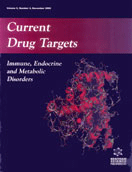Abstract
The term "functional food" refers to foods or ingredients of foods providing an additional physiological benefit beyond their basic nutritional needs. Health benefits are best obtained through a varied diet containing fruits, vegetables, grains, legumes and seeds. However, fortified foods and dietary supplements have been marketed and food industry have made functional food one of their current leading trends. Recently, the number of functional foods that have a potential benefit on health has hugely grown and scientific evidence is supporting the role of functional foods in prevention and treatment of several diseases. Cancer, diabetes, heart disease and hypertension are the most important diseases that can be treated or prevented by functional foods; other diseases are osteoporosis, abnormal bowel motility, and arthritis. It has been estimated that 80% of cancer in USA have a nutrition/diet component suggesting a great impact of functional food and foods components on incidence and treatment of cancer. Numerous factors complicate the evaluation of scientific evidence such as the complexity of food substance, effect on food, metabolic changes associated to dietary changes, the lack of biological markers of disease development. This paper reviews the scientific evidence supporting this area regarding only those foods and ingredients in which a clear experimental and clinical evidence exists for their chemopreventive and therapeutic effects.
Keywords: functional foods, cancer, epidemiological, experimental, clinical studies, chemoprevention, cancer treatment















